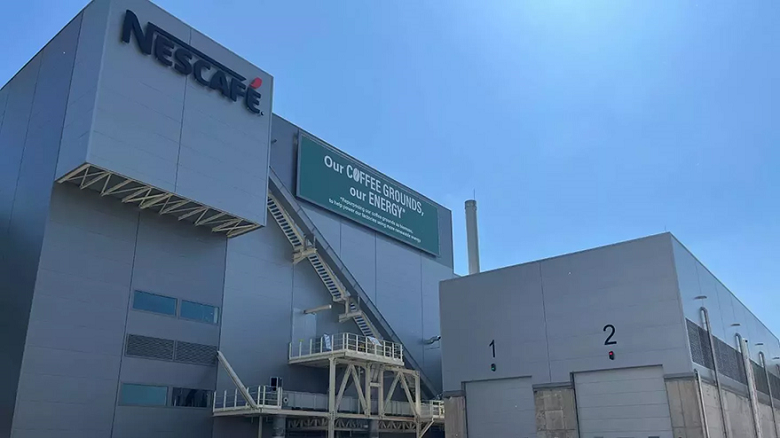Nestlé strengthens Catalonia and Cantabria plant investment

The company has allocated 22 million for its factory in Girona and 5.5 million for La Penilla de Cayón .
The Spanish subsidiary of agri-food company Nestlé has announced two major investments in Spain. In the case of Gerona, it has allocated 22 million euros to setting up a second biomass boiler. At its factory in Cantabria, the company has invested around 5.5 million euros to make progress in automating the packaging system.
The Gerona coffee factory project is part of the Swiss company’s commitment to achieving zero net greenhouse gas emissions by 2050. Constructing and commissioning a second biomass boiler will reduce dependence on natural gas in producing Nescafé soluble coffee and Nescafé Dolce Gusto capsules.
Recycling coffee grounds
The new biomass boiler comes in addition to the one built in 2020, with an investment of over 17 million euros. Its entry into operation will make it possible to recycle 100% of the coffee grounds, a 100% vegetable by-product obtained during the manufacture of soluble coffee, and which last year amounted to over 52,000 tonnes. This by-product is a biofuel suitable for steam power generation due to its high calorific value.
In addition to coffee grounds, the new boiler will be fuelled with between 12,000 and 15,000 tonnes of wood chips per year from sustainably managed Catalan forests recognised with Sure certificates. The two boilers already produce 80% of the plant’s steam requirements, each producing 116,000 tonnes of steam per year. Each year, they will avoid releasing emissions that are equivalent to over 36,000 tonnes of CO2.
Automated packaging system
The chocolate factory in La Penilla de Cayón (Cantabria) has in turn received an investment of around 5.5 million euros to automate its packaging system and be able to produce multipacks of chocolate bars without using plastic. This material has been replaced by a paper side sticker, which is already being used on the first products to be packaged at this site for the Spanish, French and Greek markets.
The work began at the end of 2024 and was completed in April, and has also served to renovate and optimise the factory’s packaging lines. This new technology will reduce the use of virgin plastic by 44 tonnes compared to last year.
The Director of the Cantabrian plant, Diana del Campo, said that this investment “reinforces the company’s commitment to sustainable food and innovation in packaging”.
She explained that “the transition to plastic-free multipacks for Nestlé chocolate bars not only represents a significant step forward in reducing greenhouse gas emissions, but also responds to growing consumer demand for more sustainable products”.
Furthermore, with this investment, the company is “taking an important step towards a more responsible future aligned with corporate values. This investment also allows us to improve the efficiency of our production processes, thus contributing to a more sustainable business model.”
Photo: Nestlé




